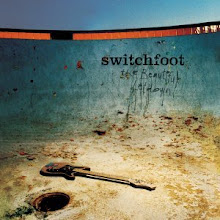Suicide bombers kill 15 people outside Pakistani churches
A pair of suicide bombers attacked two churches in the eastern Pakistani city of Lahore on Sunday as worshippers prayed inside — killing 15 people in the latest assault against religious minorities in this increasingly fractured country, officials said.
A spokesman for the Pakistani Taliban, Ahsanullah Ahsan, claimed responsibility for the assault in a statement emailed to reporters, and warned, "There will be more of such attacks."
Afterward, an angry Christian mob blocked a major highway, ransacked a bus terminal and burned two people to death who they suspected of being involved in the attacks. Christian demonstrators blocked roads in other major Pakistani cities as well.
The explosions occurred in quick succession in the Christian neighborhood of Youhanabad at two churches while parishioners worshipped at Sunday morning services. The churches are about 600 meters (650 yards) apart. At least 70 people were wounded, said Zahid Pervez, the provincial director general of health, who gave the death toll.
Area hospitals filled with casualties and scenes of mourning. Shaheen Bibi's 10-year-old son Abhishak was among those killed.
"My son had gone to the church to pray for a good result in his examinations," Bibi said as she cried and struck her head against the chest of a relative. "He wanted me to sew him some new clothes if he passed his examinations."
Witnesses said the bombers targeted a crowded gate when a large group of worshippers was waiting to enter one of the churches.
Life in Pakistan is increasingly dangerous for religious minorities, especially Christians. They have been targeted by extremist Sunni Muslim militants and are also discriminated against in the wider society, where they are often limited to menial jobs like garbage collection.
U.S. State Department Spokeswoman Jen Psaki on Monday spoke up for the rights of Pakistani minorities.
"The United States stands in solidarity with the people and government of Pakistan in confronting this type of extremist violence," she said. "We support the right of every person to practice religion without fear of intimidation, death, coercion or any form of reprisal. This is a basic human right both in Pakistan and throughout the world."
Much of the country is already on edge after years of militant violence including an attack on a Peshawar school in December that killed 150 people — mostly students.
The angry crowd attacked two people they thought were connected to the attack, and burned them to death while others attacked buses in the city, said deputy inspector general of police Haider Ashraf. Two police officers who were protecting the churches were also killed in the explosions, which Ashraf confirmed were caused by suicide bombers.
A spokesman for the Punjab provincial government, Zaeem Qadri, also said it was unfortunate that the mob had killed the two suspects rather than turning them over to police. He said authorities are reinforcing security at the 481 remaining churches across the city.
Militants attacks targeting minorities have intensified recently, including attacks on a string of mosques belonging Shiite Muslims, a minority in Pakistan. In 2013, twin blasts at a church in Peshawar killed 85 people.
Prime Minister Nawaz Sharif has his power base in Lahore and his party, the Pakistan Muslim League-N, also runs the Punjab government, where his brother is chief minister. The provincial government has been accused in the past of not doing enough to protect religious minorities and fight extremist groups based in the province.
Tuesday, March 17, 2015
Subscribe to:
Post Comments (Atom)




No comments:
Post a Comment